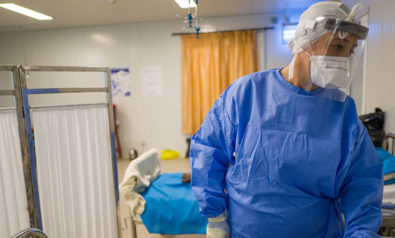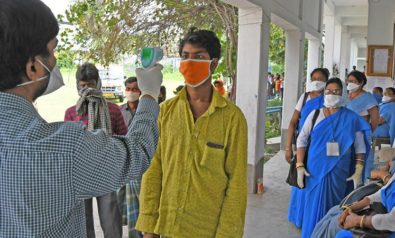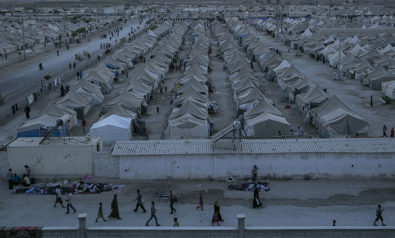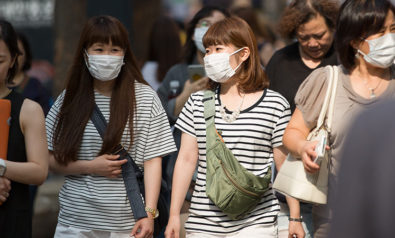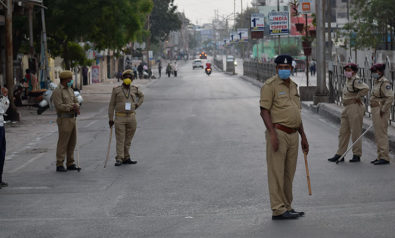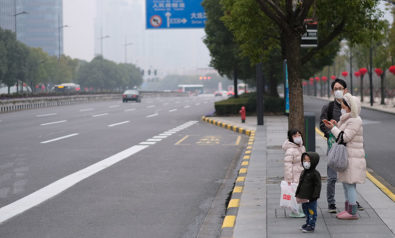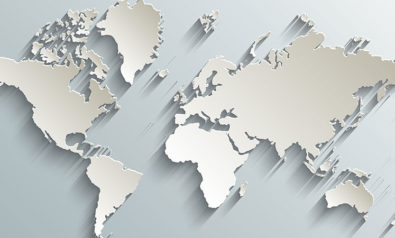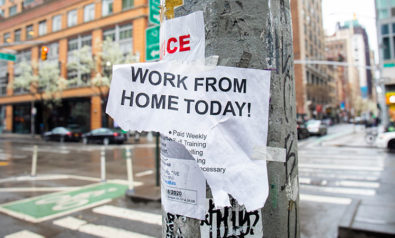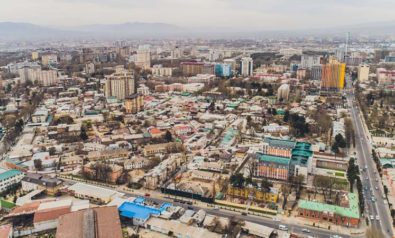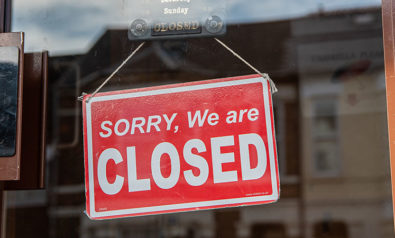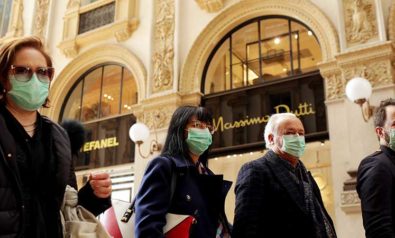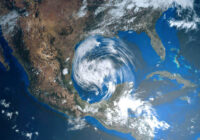In recent days, Donald Trump’s administration finally appears to have come to grips with the seriousness of the coronavirus crisis threatening to lay waste to the country and, with it, his presidency. The US Centers for Disease Control and Prevention has recommended that people cover their faces, using any means at their disposal, when going outside. In a bold move, Trump was said to be close to recommending to his fellow citizens to cover their faces, while at the same time refusing to do so himself. This change of course goes against all the advice which had been promoted online strongly insinuating that wearing face masks was neither necessary nor encouraged.
The advice originated with the World Health Organization (WHO), which until recently had deemed face masks essential only “for health workers and sick people” not, however, for the general public. An article from an Austrian newspaper from late February provided some insight into the rationale behind this recommendation. The headline was paradigmatic: “Why face masks don’t offer protection against infection.” According to “experts,” for healthy people to wear a face mask when out in the streets was “nonsensical.” In fact, the authors of the article claimed, wearing a mask might be counterproductive. It might give the wearer a false sense of security. As a result, he or she might neglect to wash their hands as thoroughly as recommended by the WHO.
In a similar vein, the German center-left weekly Die Zeit noted that face masks might look cute, but in an “emergency” they were about as useful as an umbrella in a storm front — completely useless. In France, in mid-March, one of the country’s leading news magazines, Le nouvel observateur, cautioned against the use of masks and gloves claiming that wearing them was “not necessarily effective.”
Masking the Problem
In the meantime, there is growing evidence that covering nose and mouth does in fact have benefits, if only to lower the probability or people, especially the young, who show few, if any, symptoms, to pass on the infection to those most vulnerable. A few days ago, in an interview with Science, George Gao, director general of the Chinese Center for Disease Control and Prevention, affirmed that it was a “The big mistake in the U.S. and Europe, in my opinion, is that people aren’t wearing masks. This virus is transmitted by droplets and close contact. Droplets play a very important role — you’ve got to wear a mask, because when you speak, there are always droplets coming out of your mouth. Many people have asymptomatic or presymptomatic infections. If they are wearing face masks, it can prevent droplets that carry the virus from escaping and infecting others.”
In France this Sunday, one of the country’s leading epidemiologists pleaded for a complete reversal of course and follow the Asian example, meaning that everybody wears a mask in public. Against that, in Switzerland, one of the countries with the highest infection rates per million, public authorities continue to insist that wearing masks and gloves is “not effective.”
What, then, accounts for the reticence on the part of those who should have known better to advise everyone to wear face masks? One reason stands out: the utter unpreparedness of most advanced liberal capitalist countries in the face of the crisis. In Switzerland, for instance, one of the most affluent countries in the world, home to some of the most prominent pharmaceutical companies, pharmacies advised customers to take precautions, wash hands and, when in public, use hand sanitizer. There was only one problem: There was no hand sanitizer to be had, neither in the major supermarkets nor in pharmacies. It is only now, after more than four weeks, that one of the country’s major supermarket chains offers hand sanitizer, strictly limited to one per person.
And what about masks? As the Swiss quickly found out, the country’s masks were supplied by Germany, which stopped exports to Switzerland as soon as the crisis hit. In Switzerland, not one company was in a position to produce masks. As a result, three weeks into the lockdown, Switzerland does not have a large enough supply of masks for authorities to recommend that citizens wear them in public.
The situation was not very much different in the rest of the European Union. With the onset of the crisis, solidarity stopped at national borders. Hard-hit countries, such as Italy, Spain and France, finally had to turn to China to get desperately needed medical supplies — in the face of brutal international “disloyal” competition that some have described as Wild West tactics and a new form of piracy.
Maskaphobia
Given the extent of the crisis, there was a second quite plausible reason for discouraging the public from wearing masks. Since masks were in short, and rapidly diminishing, supply, priority should go to those most in need — doctors and nurses exposed to the virus on a daily basis. In Germany, for instance, the situation was so critical that in late March, public health authorities proposed subjecting used masks in clinics, hospitals and homes for the elderly to high heat in order to decontaminate them so they could be reused several times. The measure was supposed to be valid for a maximum of six months — the time it would take to build up capacity.
An article in The Guardian made a similar point: “As medical staff and patients in hospital are the people who benefit most from face masks, encouraging the mass adoption of masks could reduce the supply for the people who need them most.” In the US, the country’s surgeon general, Dr. Jerome Adams, tweeted on February 29: “Seriously people — STOP BUYING MASKS! They are NOT effective in preventing general public from catching #Coronavirus, but if healthcare providers can’t get them to care for sick patients, it puts them and our communities at risk!” This is a perfectly reasonable proposition. It should, however, not be used to divert attention from the main reason we are in this situation: the complete failure of public authorities to anticipate, and prepare for, this crisis.
There is a third reason why even today, following one of the most basic precautionary measures — namely covering one’s mouth and nose in public — continues not to be followed by everyone. Unlike in Japan and other Asian countries, Europeans and North Americans don’t have a culture conducive to wearing masks, for instance during the flu season. Asian tourists ambulating the streets of Paris, Florence, Barcelona or New York wearing masks are a curiosity for the natives, provoking amusement and the occasional shaking of heads.
When, at the beginning of the current crisis, a prominent Swiss member of parliament entered the assembly hall wearing a mask, she was ordered to leave so as not to cause a disturbance. As the crisis progressed, individuals wearing masks, particularly if they happened to be Asians, became the targets of racist attacks, triggered by “maskaphobia” — a neologism for a fear of masks or, perhaps better, of those who wear them.
To make matters worse, at least in Western Europe over the past decade or so, covering one’s face, if only partially, has come to be associated with Islam. In response, a number of European countries have passed laws prohibiting items such as the niqab or the burqa to be worn in public. Under the circumstances, governments encouraging their citizens to cover their faces in public has posed something of a dilemma — a fact not lost on the Muslim community. As one website noted, it “was indeed surprising to see that in France, where the covering of the face was considered an illegal act, and now they’re forcing their locals to cover their faces.” In fact, the correct word under the circumstances is not “surprising,” but “ironic.” But, as the saying goes, drastic times call for drastic measures, principles be damned.
By now, it is well established that wearing a mask, sophisticated or rudimentary, such as covering the lower parts of the face with a scarf or bandana, does make a difference in slowing down the rate of infection and, thus, flattening the curve. Anything that might make a difference, without being harmful, is better than doing nothing. By now it is equally well established that the vast majority of those infected with the virus show few, if any, symptoms. For them, COVID-19 is nothing worse than a bout of the flu. They might not even know that they got infected.
Yet they are contagious, potentially continuing to spread the virus at an exponential rate. Under the circumstances, anything that prevents the propagation of infection should not only be encouraged, but mandated, and enforced with the full force of the law, as they do in Laredo, Texas, where anybody caught without covering the lower parts of their face can be charged with a misdemeanor punishable by a fine of up to $1,000.
The views expressed in this article are the author’s own and do not necessarily reflect Fair Observer’s editorial policy.
Support Fair Observer
We rely on your support for our independence, diversity and quality.
For more than 10 years, Fair Observer has been free, fair and independent. No billionaire owns us, no advertisers control us. We are a reader-supported nonprofit. Unlike many other publications, we keep our content free for readers regardless of where they live or whether they can afford to pay. We have no paywalls and no ads.
In the post-truth era of fake news, echo chambers and filter bubbles, we publish a plurality of perspectives from around the world. Anyone can publish with us, but everyone goes through a rigorous editorial process. So, you get fact-checked, well-reasoned content instead of noise.
We publish 2,500+ voices from 90+ countries. We also conduct education and training programs
on subjects ranging from digital media and journalism to writing and critical thinking. This
doesn’t come cheap. Servers, editors, trainers and web developers cost
money.
Please consider supporting us on a regular basis as a recurring donor or a
sustaining member.
Will you support FO’s journalism?
We rely on your support for our independence, diversity and quality.



